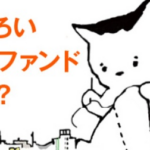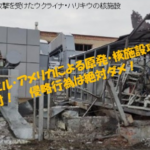For an English version of this page, see HERE. このページの英語版はここです。
1月7日に、ノーム・チョムスキ、オリバー・ストーン、マイケル・ムーア、マイレード・マグワイア各氏など29人の世界の識者・文化人が辺野古基地建設に反対する声明を出して話題になったが、1月30日付の沖縄タイムス、琉球新報等で報道されているように、呼び掛け人が100人に達したことが発表された。同時に、オバマ大統領と安倍首相に対し、辺野古基地建設を断念し普天間基地をすみやかに返還することを求める国際署名キャンペーンが開始された。
署名をお願いします。日本語版はここです⇒http://chn.ge/1glVJSw
(英語版は http://chn.ge/1ecQPUJ)
プレス・リリース
100人を超える世界の識者、文化人らが、沖縄の地元住民による新基地建設拒否の決定を支持する。
2014年1月28日
即日発表
問い合わせ、取材先は:
Joseph Gerson(ジョセフ・ガーソン): 1-617-661-6130/JGeson@afsc.org
Peter Kuznick(ピーター・カズニック): 1-202-885-2408/ pkuznick@aol.com
Gavan McCormack(ガバン・マコーマック): 61-2-6125-3164/gavan.mccormack@anu.edu.au
29人の識者や文化人による1月7日の声明(http://p.tl/SBZo)は、世界中、特に日本のメディアに幅広い注目を受けた。声明は、沖縄に大規模な海兵隊基地を作りたい勢力に対し、仲井真県知事が年末に屈服したことにがく然としていた沖縄の人々を力づけ、元気を取り戻すことに役立ったようだ。沖縄からこのようなメールも届いた。「この声明が私と、このたたかいを続けている沖縄の仲間たちにとってどれほどの大きな意味を持つかわからないのではないでしょうか。声明を出した皆さんもここにいてその目で見てくれるといいのですが。」
前回発表時の呼びかけ人として、言語学者ノーム・チョムスキー、アカデミー賞受賞映画監督のオリバー・ストーンとマイケル・ムーア、ノーベル平和賞受賞者マイレッド・マグワイア、歴史学者ジョン・ダワー、元陸軍大佐・外交官のアン・ライト、国連のパレスチナ問題特別報告者リチャード・フォーク等が連名した。
今回、声明の呼び掛け人は100人を超えている。新たな呼び掛け人には、平和学の先駆者であるヨハン・ガルトゥング、医師・反核運動家ヘレン・カルディコット、生物学者・科学番組キャスターのデイビッド・スズキ、平和教育家ベティ・レアドン、政治学者カレル・バン・ウォルフェレン、ピュリッツアー賞受賞歴史家マーティン・シャーウィンなどが名を連ねている。他にも、一流の著述家、学者、映画監督、さまざまな平和団体の代表者たち、そして沖縄の軍事植民地状態を終えるために尽くしてきた人々がいる。
1月19日は沖縄にとって記念すべき勝利の日であった。名護の市民たちは、一貫して「海にも陸にも」基地を作らせないと反対してきた稲嶺進市長を再選したのだ。選挙前の世論調査では、名護市民のうち新基地計画を支持するのは9%にすぎなかった。住民の多数派による新基地建設の拒否は、仲井真弘多知事と、仲井真氏が米国の移設案に従うように重圧をかけた安倍晋三首相への不信任票に相当するものであった。稲嶺市長の勝利は、ニューヨーク・タイムズ紙が正しく指摘したように、さらなる振興金と公共事業を語ることによって票を買おうと試みた「安倍晋三首相にとって、面目をつぶす大打撃」であった。
沖縄の選挙の歴史において、基地受け入れを明言して当選した人はいない。今回の名護の選挙も例外ではなかった。沖縄の市民たちは、基地建設のための大規模な埋め立ての仲井真知事による承認を取り消すための訴訟を起こした。知事をリコールするための方法も模索中である。県議会は仲井真氏に辞職を要求する決議を通した。しかし安倍とオバマ両政権は沖縄のあらゆる抵抗を潰す用意をしているように見える。稲嶺市長再選のたった二日後に、日本政府は基地建設の準備作業のための入札公告を開始した。
沖縄の人々は過去もそうしてきたように、デモ、要請行動、選挙、訴訟、座り込み、学術や芸術活動、そして建設を中止させるための直接行動などの反対運動をし続けるであろう。人々は時には、カヌーをこいで海上のやぐらに体をしばりつけ、政府による調査を阻止することまでした。私たちは沖縄の人々の平和と尊厳、人権と環境保護のためのたたかいを支持する。私たちは国際署名運動を開始し、沖縄の新基地建設に反対し普天間基地の即刻返還を求め、沖縄の人々の民主主義と人権を無視する安倍氏とオバマ氏に異議を申し立てる。
署名運動のサイトはhttp://chn.ge/1glVJSw。英語版は http://chn.ge/1ecQPUJ。
(以下1月7日発表済の声明と、1月28日現在の呼び掛け人リスト)
声明
私たちは沖縄県内の新基地建設に反対し、平和と尊厳、人権と環境保護のためにたたかう沖縄の人々を支持します。
私たち署名者一同は、2013年末に安倍晋三首相と仲井真弘多沖縄県知事の間でかわされた、人間と環境を犠牲にして沖縄の軍事植民地状態を深化し拡大させるための取り決めに反対します。安倍首相は経済振興をエサに、軍港をともなう大型の海兵隊航空基地を作るために沖縄北東部の辺野古沿岸を埋め立てる承認を仲井真知事から引き出しました。
辺野古に基地を作る計画は1960年代からありました。それが1996年に掘り起こされ、前年に起こった少女暴行事件もあり当時沖縄で最高潮に達していた反米軍基地感情を鎮めるために、日米政府は、宜野湾市の真ん中にある普天間基地を閉鎖して、辺野古の新基地にその機能を移転させようと計画しました。辺野古は稀に見る生物多様性を抱え、絶滅の危機にある海洋哺乳動物、ジュゴンが棲息する地域です。
仲井真知事の埋め立て承認は沖縄県民の民意を反映したものではありません。知事は2010年の知事選直前に、それまでの新基地容認姿勢を変更し、「普天間基地移設は県外に求める」と言って、新基地反対で一貫していた候補を破って当選しました。近年の世論調査では県民の辺野古新基地への反対は7割から9割に上っていました。今回の仲井真知事埋め立て承認直後の世論調査では、沖縄県民の72.4%が知事の決定を「公約違反」と言っています。埋め立て承認は沖縄県民に対する裏切りだったのです。
在日米軍専用基地面積の73.8%は日本国全体の面積の0.6%しかない沖縄県に置かれ、沖縄本島の18.3%は米軍に占拠されています。普天間基地はそもそも1945年の沖縄戦のさ中、米軍が本土決戦に備え、住民の土地を奪って作りました。終戦後返還されるべきであったのに、戦後70年近く経っても米軍は保持したままです。したがって、返還に条件がつくことは本来的に許されないことなのです。
今回の合意は長年の沖縄の人々の苦しみを恒久化させることにもつながります。沖縄は、日本による17世紀初の侵略に始まり、19世紀末の日本国への強制併合を経て、1944年には、米軍の襲撃を控え、天皇制を守るための時間稼ぎの要塞とされました。沖縄戦では10万人以上、住民の4分の1にあたる人々が殺されました。戦後、米軍政下において基地はさらに増えました。沖縄は1972年に日本に「返還」されたものの、基地がなくなるとの沖縄住民の希望は打ち砕かれました。そして今日も、沖縄県民は基地の存在によってひき起こされる犯罪、事件、デシベル数の高い航空機の騒音や、環境汚染による被害を受け続けています。戦後ずっと、沖縄の人々は米国独立宣言が糾弾する「権力の濫用や強奪」に苦しめられ続けています。その例として同宣言が指摘する「われわれの議会による同意なしの常備軍の駐留」もあてはまります。
沖縄の人々は、米国の20世紀における公民権運動に見られたように、軍事植民地状態を終わらせるために非暴力のたたかいを続けてきました。生活を脅かす実弾砲撃訓練に対し演習場に突入して阻止したり、米軍基地のまわりに人間の鎖を作って抵抗を表現したりしました。大規模なデモが時折持たれ、約10万人-人口の10分の1にもあたる人々が参加してきています。80代の人たちが辺野古基地建設を阻止するために立ち上がり、座り込みは何年も続いています。県議会は辺野古基地反対の決議を通し、2013年1月には全41市町村首長が、オスプレイ配備撤回と県内移設基地の建設を断念するよう政府に求める建白書に署名しました。
私たちは、沖縄の人々による平和と尊厳、人権と環境保護のための非暴力のたたかいを支持します。辺野古の海兵隊基地建設は中止すべきであり、普天間は沖縄の人々に直ちに返すべきです。
2014年1月
呼び掛け人一覧(苗字のアルファベット順、2014年1月28日現在)
マシュー・アレン: ジェームズ・クック大学(豪)研究員
ガー・アルペロビッツ: メリーランド大学(米)政治経済学科教授
コージー(カズコ)・アメミヤ: 沖縄移民研究家
コリン・アーチャー: 国際平和ビューロー(IPB)事務局長
ノーマン・バーンボーム: ジョージタウン大学名誉教授
ハーバート・ビクス: ニューヨーク州立大ビンガムトン校歴史学・社会学名誉教授
ダニエル・ボツマン: イェール大学日本史教授
ジャン・ブダール: 核エネルギー情報サービス(シカゴ)
ライナー・ブラウン: 国際平和ビューロー(IPB)共同代表、国際反核兵器法律家協会(IALANA)事務局長
ジェーン・カダレット: 米国パックス・クリスティ
ヘレン・カルディコット: 核のない将来のための財団、社会的責任を果たすための医師団初代会長
トニー・カスタンハ: ハワイ大学先住民学科講師
ソンヒ・チェ: チェジュ島海軍基地に反対するカンジョン村運動
ノーム・チョムスキー : マサチューセッツ工科大学言語学名誉教授
ビビアン・デイムズ: グアム大学社会福祉学科准教授(退職)
ウィニー・デトワィラー: サクラメント地区ピース・アクション
ケリー・ディエズ: イサカ・カレッジ政治学部助教授
ジョン・W・ダワー: マサチューセッツ工科大学歴史学名誉教授
ジーン・ダウニー: 弁護士、著述家
アレクシス・ダデン: コネチカット大学歴史学教授
ジョーン・エックライン: マサチューセッツ大学公共コミュニティーサービス学部(退職)
ダニエル・エルズバーグ: 核時代平和財団(Nuclear Age Peace Foundation)上級研究員、元国防総省・国務省職員
シンシア・エンロー: クラーク大学研究教授
リチャード・フォーク: プリンストン大学国際法名誉教授
パット・ファレル: アイオワ州ダビュークのセント・フランシス修道女会
トーマス・ファッツィ: 著述家、映画監督(イタリア)、映画『Standing Army』 (日本語版『誰も知らない基地のこと』)共同監督
ジョン・フェファー: 政策研究所(IPS)「フォーリン・ポリシー・イン・フォーカス」(fpif.org) 共同代表
ゴードン・フェルマン: ブランダイス大学(米)社会学教授
ノーマ・フィールド: シカゴ大学東アジア言語文明学部名誉教授
キャロリン・フォーシェイ: ジョージタウン大学英文学教授、ラナン詩学研究所長
ブルース・ギャグノン: 「宇宙への兵器と核エネルギーの配備に反対する地球ネット」コーディネーター
ヨハン・ガルトゥング: 社会学者、平和発展と環境のためのネットワーク「トランセンド」創立者
アイリーン・ゲンズィエー: ボストン大学政治学部名誉教授
ジョセフ・ガーソン(PhD): 「アメリカン・フレンズ・サービス委員会」平和と経済の安全保障プログラム部長、政治学・国際安全保障学博士
ゲリー・R・ゴールドスタイン: タフツ大学物理学天文学部教授
ローラ・ハイン: ノースウェスタン大学(シカゴ)日本史教授
ジョン・ホセバー: グリーンピース海洋キャンペーンディレクター
グレン・D・フック: シェフィールド大学東アジア研究所教授
ケイト・ハドソン(PhD): 核軍縮キャンペーン事務局長
ミッキー・ハフ: ディアブロ・バレー・カレッジ歴史学教授、「Project Censored」 ディレクター
ビンセント・J・イントンディ: モンゴメリー・カレッジ歴史学准教授
ジーン・E・ジャクソン: マサチューセッツ工科大学人類学教授
ポール・ジョバン: パリ・ディドゥロ大学東アジア言語文明学科准教授
シーラ・ジョンソン: 日本政策研究所(カーディフ、カリフォルニア)、故チャルマーズ・ジョンソン未亡人
ピーター・ジョーンズ: タスマニア大学アジア学部講師(ホバート、豪)
ポール・ジョセフ: タフツ大学社会学教授
ジョン・ユンカーマン: 映画監督、『映画日本国憲法』監督
ルイース・カムプフ: マサチューセッツ工科大学 人文学部名誉教授
ブルース・ケント: 国際平和ビューロー元会長 英国核軍縮キャンペーン元議長
アサフ・クフーリ: ボストン大学数学・コンピュータサイエンス教授
ピーター・キング: シドニー大学名誉教授・人類生存プロジェクト召集者
ナオミ・クライン: 著述家、ジャーナリスト
ジョイ・コガワ: 作家、『オバサン』(和訳『失われた祖国』)著者
ピーター・カズニック: アメリカン大学歴史学教授
ジョン・ランペルティ: ダートマス大学数学名誉教授
スティーブ・リーパー: 広島女学院大学教授
ダイアン・レビン: ウィーロック大学(米)教育学教授
ピーター・リム: ミシガン州立大学歴史学教授
ダグラス・ラミス: 沖縄国際大学講師
キャサリン・ルッツ: ブラウン大学人類学・国際問題学教授
キョー・マクレア: 作家、児童文学者
マイレッド・マグワイア: ノーベル平和賞受賞者
ケビン・マーティン: ピース・アクション事務局長
ロバート & ジュリア・K・マツイ・エストレラ: 映像作家、写真家
ケイコ・マツイ・ヒガ: 著述家
ガバン・マコーマック: オーストラリア国立大学名誉教授
ズィア・ミアン: プリンストン大学
マイケル・ムーア: 映画監督
リサリンダ・ナビダッド: グアム大学社会福祉准教授
アグネータ・ノーベルグ: スェーデン平和評議会
エイイチロウ・オチアイ: ジュニアータ大学(米)名誉教授
サトコ・オカ・ノリマツ: ピース・フィロソフィー・センター代表
クーハン・パク: グローバライゼーションについての国際フォーラム(サンフランシスコ)
エンリコ・パレンティ: 映画監督(イタリア)、映画『Standing Army』 (日本語版『誰も知らない基地のこと』)共同監督
リンディス・パーシー: 米軍基地の説明責任キャンペーン・コーディネーター(英国)
ソフィー・クイン=ジャッジ: テンプル大学歴史学准教授
スティーブ・ラブソン: ブラウン大学名誉教授・米陸軍退役軍人(沖縄・辺野古にて1967-68年駐留)
J.ナラヤマ・ラオ: 文化、教育、経済センター書記(インド)
ベティ・レアドン: 国際平和教育学会教育学教授および名誉創始者
デイビッド・レイノルズ: 戦争抵抗者インターナショナル前議長、1980年と2000年の社会党大統領候補
デイビッド・ロスハウザー: 朝鮮戦争退役軍人、WILPF9条キャンペーン、
映画『被爆者、わが人生』監督
オーレリー・ロヨン: フランス平和運動(Mouvement de la Paix)
マーク・セルダン: コーネル大学東アジアプログラム上級研究員
マーティン・シャーウィン: ジョージ・メイソン大学教授 ピュリッツアー賞受賞者
アリス・スレイター: アボリション2000調整委員会
マーク・ソロモン: シモンズ大学歴史学名誉教授
ジョン・スタインバック: 首都圏ヒロシマ・ナガサキ平和委員会(ワシントンDC)
オリバー・ストーン: 映画監督
デイビッド・スズキ: 生物学者、科学番組キャスター、著述家、環境運動家
コウジ・タイラ : イリノイ大学アーバナ・シャンペーン校経済学名誉教授
ロイ・タマシロ: ウェブスター大学(米)教授
マイケル・トルゥー: アサンプション大学(米)名誉教授
ジョー・バレンタイン: オーストラリア連邦議会元オーストラリア緑の党上院議員
カレル・バン・ウォルフェレン: アムステルダム大学名誉教授、著述家
デイビッド・バイン: アメリカン大学人類学部准教授
バネッサ・ウォーハイト: 映画監督、『離島の帝国 マリアナ諸島のアメリカ』監督
デイブ・ウェブ: リーズ・メトロポリタン大学(英)平和と紛争解決学名誉教授、核軍縮キャンペーン議長
ロイス・ウィルソン: 世界教会協議会前総会議長
ルーカス・ワール: 地球的責任のための技術者・科学者国際ネットワーク(独)プログラム・ディレクター
ローレンス・ウィットナー: ニューヨーク州立大学アルバニー校歴史学名誉教授
アン・ライト: 陸軍大佐、元米国外交官
アンジー・ゼルター: トライデント・プラウシェア運動(英国)
署名サイト:http://chn.ge/1glVJSw
(英語版はhttp://chn.ge/1ecQPUJ)
投稿者 Peace Philosopher 時刻: 9:20 am No comments: この投稿へのリンク
Email ThisBlogThis!Share to TwitterShare to Facebook
ラベル: In Japanese 日本語投稿, Okinawa, US Military Bases on Foreign Lands
This is the second statement, following the first one of January 7. See Japanese version HERE. 日本語版はここです。
Please sign the international petition.
Go to: http://chn.ge/1ecQPUJ
PRESS RELEASE
Over One Hundred International Scholars, Peace Advocates and Artists Support Local Residents’ Decision to Refuse New Military Base Construction in Okinawa
For Immediate Release
January 28, 2014
For More Information Contact:
Joseph Gerson: 1-617-661-6130/ jgerson@afsc.org
Peter Kuznick: 1-202-885-2408/pkuznick@aol.com
Gavan McCormack: 61-2-6125-3164/gavan.mccormack@anu.edu.au
Our statement (http://p.tl/vZzS) of January 7, signed by 29 prominent scholars and artists, received wide international media attention, especially from outlets across Japan. It helped to empower and invigorate the people of Okinawa, who were appalled by Governor Nakaima’s year-end capitulation to forces who want to build a large new U.S. Marine base on the island. One Okinawan resident emailed us, “You don’t know how much this statement has meant to me and many fellow Okinawans who are in this struggle. I wish you were here to see this.”
Initial signatories included linguist Noam Chomsky, academy award winning film makers Oliver Stone and Michael Moore, Nobel Laureate Mairead Maguire, historianJohn Dower, former U.S. military officer and diplomat Ann Wright, and United Nations Special Rapporteur for Palestine Richard Falk.
We now have over one hundred signatories, including the pioneer of peace studies Johan Galtung, physician and anti-nuclear activist Helen Caldicott, biologist and science broadcaster David Suzuki, peace educator Betty Reardon, political scientist Karel van Wolferen, and Pulitzer-prize winning historian Martin Sherwin. Other signers are leading authors, scholars, and filmmakers, representatives of various peace organizations, and citizens who have been committed to ending military colonization of Okinawa.
January 19 marked a triumphant moment for Okinawa when residents of Nago City re-elected Mayor Susumu Inamine, who has consistently opposed the base construction “on land or on sea.” According to a pre-election poll, only 9 percent of Nago residents supported the new base plan. The rejection of the new base by a majority of the residents represented a vote of no-confidence in Governor Hirokazu Nakaima, who supported the pro-base candidate, and in Prime Minister Shinzo Abe, who pressured Nakaima to go along with the U.S. relocation plan. And as theNew York Times rightly said, Mayor Inamine’s win dealt “an embarrassing blow to Prime Minister Shinzo Abe,” who attempted to buy votes with talk of more subsidies and public works projects.
In the electoral history of Okinawa, no candidate has ever won by actively supporting a new base. The last Nago election was no exception. Citizens of Okinawa have filed a lawsuit to nullify Governor Nakaima’s approval of the massive land reclamation needed to build the base. They are seeking a way to recall the governor. The prefectural assembly passed a resolution to demand Nakaima’s resignation. The Abe and Obama governments, however, appear to be preparing to crush all resistance in Okinawa. Only two days after Mayor Inamine’s re-election, the Japanese government started soliciting bids for preliminary work on the base construction.
Okinawans will continue to protest, as they have in the past, in the ways of demonstrations, petitions, elections, lawsuits, sit-ins, academic and artistic activities, and direct actions to stop construction. On occasion they have paddled canoes and tied themselves to scaffolding towers to successfully obstruct a government survey of the ocean. We support them in their ongoing struggle for peace, dignity, human rights, and protection of the environment. We are now launching a petition drive calling for international opposition to new base construction in Okinawa and immediate return of Futenma and challenging Abe and Obama’s contempt for the democratic and human rights of the people of Okinawa.
The URL for the on-line petition is http://chn.ge/1ecQPUJ.
The Japanese language version is http://chn.ge/1glVJSw.
(The original statement and the list of signatories follow.)
STATEMENT
We oppose construction of a new US military base within Okinawa, and support the people of Okinawa in their struggle for peace, dignity, human rights and protection of the environment
We the undersigned oppose the deal made at the end of 2013 between Prime Minister Shinzo Abe and Governor of Okinawa Hirokazu Nakaima to deepen and extend the military colonization of Okinawa at the expense of the people and the environment. Using the lure of economic development, Mr. Abe has extracted approval from Governor Nakaima to reclaim the water off Henoko, on the northeastern shore of Okinawa, to build a massive new U.S. Marine air base with a military port.
Plans to build the base at Henoko have been on the drawing board since the 1960s. They were revitalized in 1996, when the sentiments against US military bases peaked following the rape of a twelve year-old Okinawan child by three U.S. servicemen. In order to pacify such sentiments, the US and Japanese governments planned to close Futenma Marine Air Base in the middle of Ginowan City and move its functions to a new base to be constructed at Henoko, a site of extraordinary bio-diversity and home to the endangered marine mammal dugong.
Governor Nakaima’s reclamation approval does not reflect the popular will of the people of Okinawa. Immediately before the gubernatorial election of 2010, Mr. Nakaima, who had previously accepted the new base construction plan, changed his position and called for relocation of the Futenma base outside the prefecture. He won the election by defeating a candidate who had consistently opposed the new base. Polls in recent years have shown that 70 to 90 percent of the people of Okinawa opposed the Henoko base plan. The poll conducted immediately after Nakaima’s recent reclamation approval showed that 72.4 percent of the people of Okinawa saw the governor’s decision as a “breach of his election pledge.” The reclamation approval was a betrayal of the people of Okinawa.
73.8 percent of the US military bases (those for exclusive US use) in Japan are concentrated in Okinawa, which is only .6 percent of the total land mass of Japan. 18.3 percent of the Okinawa Island is occupied by the US military. Futenma Air Base originally was built during the 1945 Battle of Okinawa by US forces in order to prepare for battles on the mainland of Japan. They simply usurped the land from local residents. The base should have been returned to its owners after the war, but the US military has retained it even though now almost seven decades have passed. Therefore, any conditional return of the base is fundamentally unjustifiable.
The new agreement would also perpetuate the long suffering of the people of Okinawa. Invaded in the beginning of the 17th century by Japan and annexed forcefully into the Japanese nation at the end of 19th century, Okinawa was in 1944 transformed into a fortress to resist advancing US forces and thus to buy time to protect the Emperor System. The Battle of Okinawa killed more than 100,000 local residents, about a quarter of the island’s population. After the war, more bases were built under the US military occupation. Okinawa “reverted” to Japan in 1972, but the Okinawans’ hope for the removal of the military bases was shattered. Today, people of Okinawa continue to suffer from crimes and accidents, high decibel aircraft noise and environmental pollution caused by the bases. Throughout these decades, they have suffered what the U.S. Declaration of Independence denounces as “abuses and usurpations,” including the presence of foreign “standing armies without the consent of our legislatures.”
Not unlike the 20th century U.S. Civil Rights struggle, Okinawans have non-violently pressed for the end to their military colonization. They tried to stop live-fire military drills that threatened their lives by entering the exercise zone in protest; they formed human chains around military bases to express their opposition; and about a hundred thousand people, one tenth of the population have turned out periodically for massive demonstrations. Octogenarians initiated the campaign to prevent the construction of the Henoko base with a sit-in that has been continuing for years. The prefectural assembly passed resolutions to oppose the Henoko base plan. In January 2013, leaders of all the 41 municipalities of Okinawa signed the petition to the government to remove the newly deployed MV-22 Osprey from Futenma base and to give up the plan to build a replacement base in Okinawa.
We support the people of Okinawa in their non-violent struggle for peace, dignity, human rights and protection of the environment. The Henoko marine base project must be canceled and Futenma returned forthwith to the people of Okinawa.
January 2014
Matthew Allen, Researcher, James Cook University
Gar Alperovitz, Lionel R. Bauman Professor of Political Economy, University of Maryland
Kozy (Kazuko) Amemiya, Independent scholar specializing on Okinawan emigration
Colin Archer, General Secretary, International Peace Bureau
Norman Birnbaum, Professor Emeritus, Georgetown University
Herbert Bix, Emeritus Professor of History and Sociology, State University of New York at Binghamton
Daniel Botsman, Professor of Japanese history, Yale University
Jan Boudart, Nuclear Energy Information Service Chicago
Reiner Braun, Co-president International Peace Bureau and Executive Director of International Association of Lawyers Against Nuclear Arms
Jane Cadarette, Pax Christi USA
Helen Caldicott, Foundation for a Nuclear Free Future, Founding President, Physicians for Social Responsibility
Tony Castanha, Lecturer in Indigenous Studies, University of Hawaii
Sung-Hee Choi, Gangjeong Village Opposition to Jeju Naval Base
Noam Chomsky, Professor Emeritus of Linguistics, Massachusetts Institute of Technology
Vivian Dames, Associate Professor of Social Work, University of Guam (Retired)
Winnie Detwiler, Sacramento Area Peace Action
Kelly Diez, Assistant Professor, Department of Politics, Ithaca College
John W. Dower, Professor Emeritus of History, Massachusetts Institute of Technology
Jean Downey, Attorney and author
Alexis Dudden, Professor of History, University of Connecticut
Joan Ecklein, College of Public and Community Service, University of Massachusetts (retired)
Daniel Ellsberg, Senior Fellow at the Nuclear Age Peace Foundation, former Defense and State Department official
Cynthia Enloe, Research Professor, Clark University
Richard Falk, Milbank Professor of International law Emeritus, Princeton University
Pat Farell, Sisters of St. Francis of Dubuque, Iowa
Thomas Fazi, Writer and filmmaker (Italy), co-director of Standing Army
John Feffer, Co-director of Foreign Policy In Focus (www.fpif.org) at the Institute for Policy Studies
Gordon Fellman, Professor of Sociology, Brandeis University
Norma Field, Professor Emerita, East Asian Languages and Civilizations, University of Chicago
Carolyn Forche, Professor of English and Director of the Lannan Center for Poetry and Poetics, Georgetown University
Bruce Gagnon, Coordinator of the Global Network Against Weapons & Nuclear Power in Space
Johan Galtung, Sociologist, Founder, TRANSCEND: A Peace Development Environment Network
Irene Gendzier, Professor Emeritus, Department of Political Science, Boston University
Joseph Gerson (PhD), Director, Peace & Economic Security Program, American Friends Service Committee
Gary R. Goldstein, Professor of Physics and Astronomy, Tufts University
Laura Hein, Professor of Japanese History, Northwestern University Chicago
John Hocevar, Oceans Campaign Director, Greenpeace
Glenn D. Hook, Professor, School of East Asian Studies, University of Sheffield
Kate Hudson(PhD), General Secretary, Campaign for Nuclear Disarmament.
Mickey Huff, Professor of History, Diablo Valley College; Director, Project Censured
Vincent J. Intondi, Associate Professor of History, Montgomery College
Jean E. Jackson, Professor of Anthropology, Massachusetts Institute of Technology
Paul Jobin, Associate Professor, East Asian Languages and Civilizations, University of Paris Diderot
Sheila Johnson, Japan Policy Research Institute, Cardiff California; widow of Chalmers Johnson
Peter J. Jones, Lecturer in Asian Studies at the University of Tasmania, Hobart, Australia
Paul Joseph, Professor of Sociology, Tufts University
John Junkerman, Filmmaker, director of Japan’s Peace Constitution
Louis Kampf, Professor of Humanities Emeritus, Massachusetts Institute of Technology
Bruce Kent, Past President International Peace Bureau and past Chair of CND UK
Assaf Kfoury, Professor of Mathematics and Computer Science, Boston University
Peter King, Emeritus professor and convener of Human Survival Project at University of Sydney
Naomi Klein, Author and journalist
Joy Kogawa, Author of Obasan
Peter Kuznick, Professor of History, American University
John Lamperti, Professor of Mathematics, Emeritus, Dartmouth College
Steve Leeper, Professor, Hiroshima Jogakuin University
Diane Levin, Professor of Education. Wheelock College
Peter Limb, Professor of History, Michigan State University
Douglas Lummis, Lecturer at Okinawa International University
Catherine Lutz, Professor of Anthropology and International Studies, Brown University
Kyo Maclear, Writer and children’s author
Mairead Maguire, Nobel Peace laureate
Kevin Martin, Executive Director, Peace Action
Robert and Julia K. Matsui Estrella, Videographer/photographer
Keiko Matsui Higa, Author
Gavan McCormack, Professor Emeritus, Australian National University
Zia Mian, Princeton University
Michael Moore, Filmmaker
LisaLinda Natividad, Associate Professor of Social Work, University of Guam
Agneta Norberg, Swedish Peace Council
Eiichiro Ochiai, Professor Emeritus, Juniata College
Satoko Oka Norimatsu, Director, Peace Philosophy Centre (Canada)
Koohan Paik, International forum on globalization, San Francisco
Enrico Parenti, Filmmaker (Italy), co-director of Standing Army
Lindis Percy, Coordinator, Campaign for the Accountability of American Bases (UK)
Sophie Quinn-Judge, Associate Professor of History, Temple University
Steve Rabson, Professor Emeritus, Brown University/ Veteran, United States Army, Henoko, Okinawa, 1967-68
J. Narayama Rao, Secretary, Centre for Cultural, Educational, Economics (India)
Betty Reardon, Professor of Education and Founding Director Emeritus, International Institute of Peace Education
David Reynolds, Former Chair, War Resisters International, Socialist Party candidate for President, 1980, 2000
David Rothhauser, Korean vet, WILPF Article 9 Campaign, director of Hibakusha – Our Life to Live
Aurelie Royon, Mouvement de la Paix
Mark Selden, a Senior Research Associate in the East Asia Program at Cornell University
Martin Sherwin, Professor, George Mason University, recipient of Pulitzer Prize
Alice Slater, Abolition 2000, Coordinating Committee
Mark Solomon, Professor Emeritus of History, Simmons College
John Steinbach, Hiroshima Nagasaki Peace Committee of the National Capital Area
Oliver Stone, Filmmaker
David Suzuki, Biologist, science broadcaster, author and environmental activist
Koji Taira, Professor Emeritus of Economics at the University of Illinois, Urbana-Champaign
Roy Tamashiro, Professor, Webster University
Michael True, Professor Emeritus, Assumption College
Jo Vallentine, Former Greens Senator in the Australian Federal Parliament
Karel van Wolferen, Emeritus professor, University of Amsterdam, author
David Vine, Associate Professor of Anthropology, American University
Vanessa Warheit, Filmmaker, director of “Insular Empire: America in the Marianas”
Dave Webb, Emeritus Professor of Peace and Conflict Studies, Leeds Met University, UK, Chair, CND
The Very Rev. the Hon. Lois Wilson, Former President, World Council of Churches
Lucas Wirl, Program Director, International Network of Engineers and Scientists for Global Responsibility, Germany
Lawrence Wittner, Professor Emeritus of History, State University of New York/Albany
Ann Wright, Retired US Army Colonel and former US diplomat
Angie Zelter, Trident Ploughshares, UK
(In the alphabetical order of family names, as of January 28, 2014)
Please join us in this cause and sign the international petition. Go to: http://chn.ge/1ecQPUJ
初出:「ピースフィロソフィー」2014.01.30より許可を得て転載
http://peacephilosophy.blogspot.jp/2014/01/blog-post_30.html
〈記事出典コード〉サイトちきゅう座http://www.chikyuza.net/
〔eye2529:140131〕








